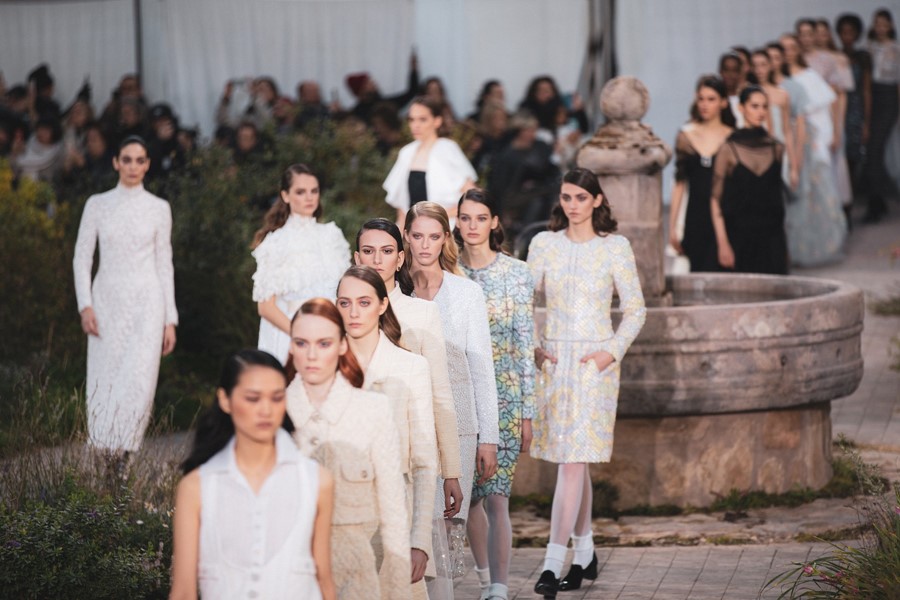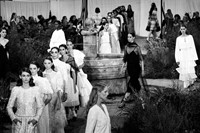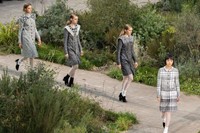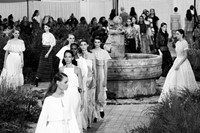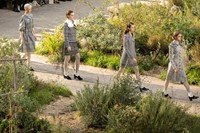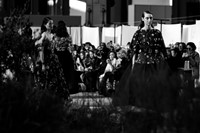For Virginie Viard’s latest haute couture collection, the house reimagines the Cistercian abbey that Coco Chanel spent her teenage years in
When her mother died, Gabrielle ‘Coco’ Chanel – then 12 years old – and her two sisters were left in the care of the nuns of Aubazine, a Cistercian abbey in Corrèze in the south-west of France. She would spend her teenage years there – at 18 she left to go to Notre Dame school in Moulins – living in the orphanage the nuns had built within their walls. A young Chanel was both fascinated by and detested the school’s strict regimen, and dreamed of escape. Though she never quite could: her time at Aubazine would linger with the designer throughout her life, forever captured in the house’s interlocking double-C logo, drawn from the geometric loops of the abbey’s stained-glass windows.
Yesterday, Virginie Viard – the first woman to helm the house after Coco Chanel herself – conjured this sheltered world within Paris’ Grand Palais, in the kind of transportative spectacle the house of Chanel has long been known for. Surrounded by fluttering vintage linens, hung on washing lines, was a recreation of Aubazine’s cloistered garden, a stone courtyard punctuated with tangles of flowers and vegetables (one trellis bore ruby-red tomatoes). “What I immediately liked was that the cloister garden was uncultivated,” Viard said, following a trip to the abbey last year.
The choice says something about Viard’s desire to turn inwards towards the intimate spaces that shaped Coco Chanel’s life – her last collection was shown in a replication of her Rue Cambon apartment; an opposition to the sheer grandiosity of Largerfeld’s world view (“Karl didn’t like those things,” Viard told American Vogue, in reference to her desire to explore Coco Chanel’s formative years). And the choice of Aubazine seemed particularly fitting for Viard’s vision, which has been characterised by a kind of streamlined restraint: “There is a sort of simplicity in going back to Chanel’s ABC. We don’t need to do too much,” she said after her Métiers d’Art show late last year.
Indeed, Viard’s collection had an ascetic purity, beginning with the tailleur – a series of tailored gowns and two-sets, in black-and white houndstooth, the colours of a young Coco Chanel’s uniform. The designer said she had been thinking of “boarders” and “schoolgirls”; there were Claudine-collar blouses and shirt dresses, rolled-up white socks and neat booties, tied by ribbons. Models hair was side-parted, or pulled back into a neat chignon. Other looks – like that worn by Adut Akech – recalled the monastic simplicity of a nun’s wimple. A lightness of touch prevented the collection from feeling staid: weightless layers of translucent tulle hovered over gowns; others were beautifully embellished with thousands of beads or flowers, or motifs reminiscent of the stained-glass windows of Aubazine’s chapel.
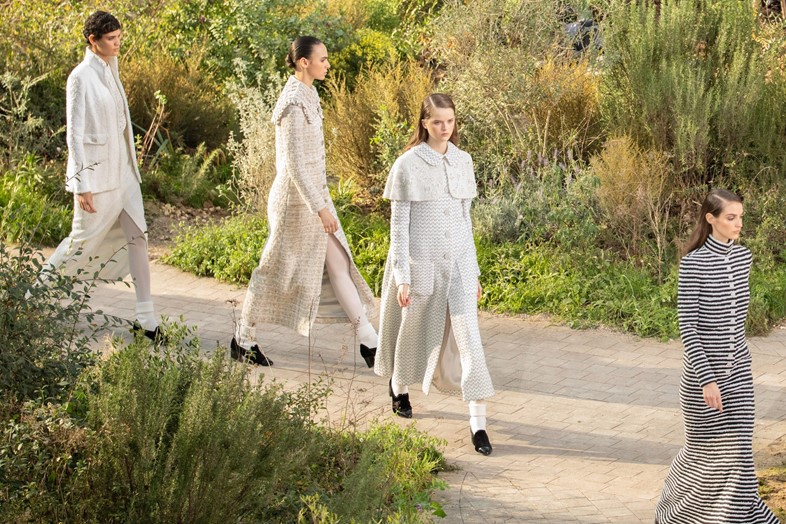
It finished, as is tradition, with the bride. She wore a white gown of relative simplicity: knee-length, with a girlish Peter Pan collar and soft pleats which ran down the front. It suggested the kind of easy femininity which has become Viard’s signature, though was finished with a distinctly couture flourish: an impossibly intricate veil, stitched with sparkling branches of wisteria. In combination, it seemed to epitomise Viard’s ability to balance the oppositions which have long given the house of Chanel its particular brand of magic; that impossible blend of luxury and restraint, fantasy and reality – clothes to wear, and clothes to dream of.
